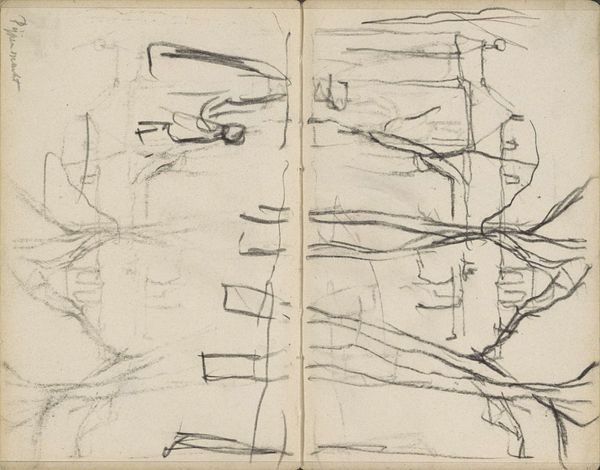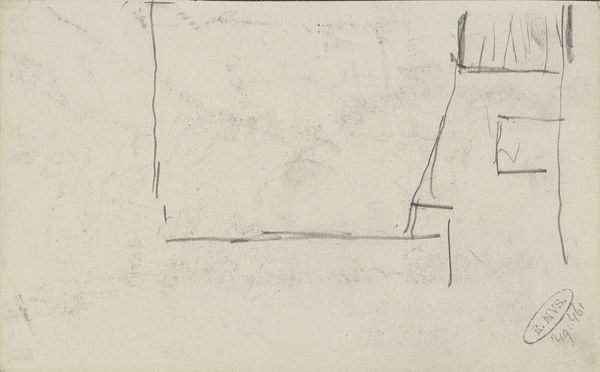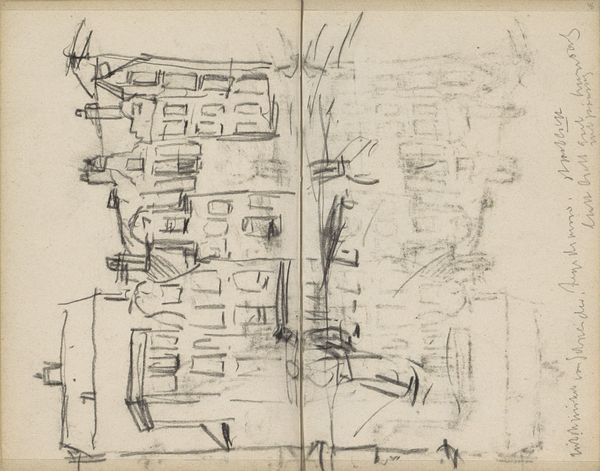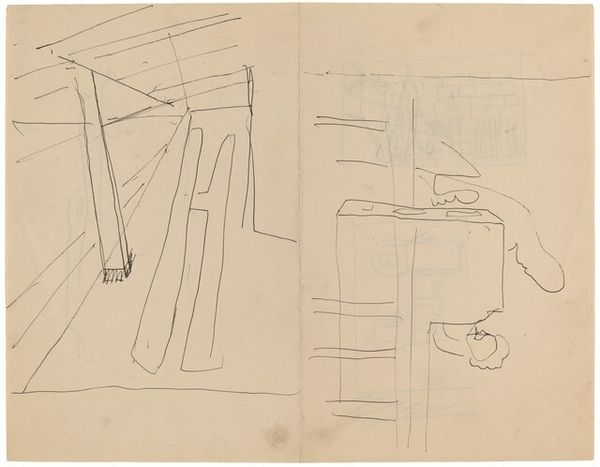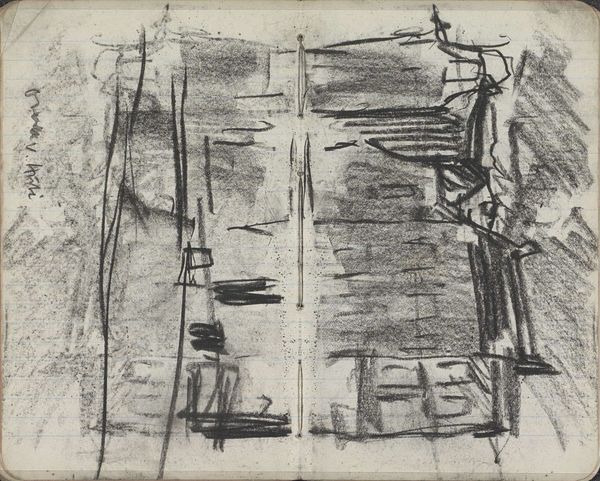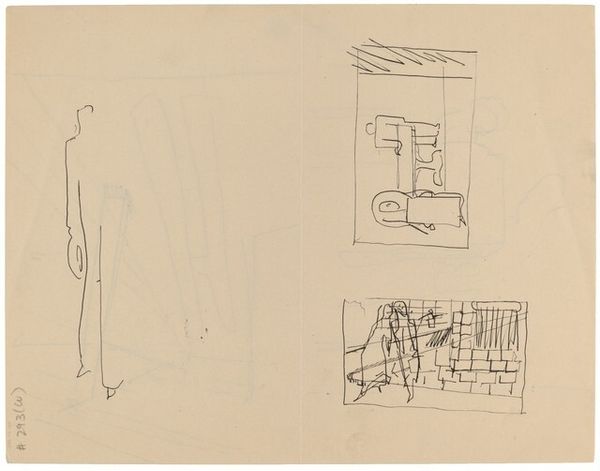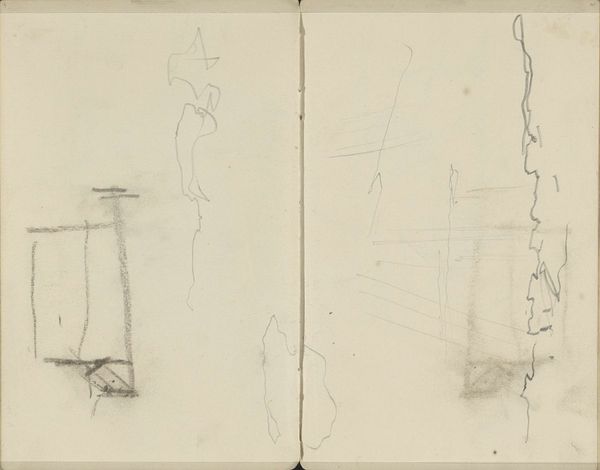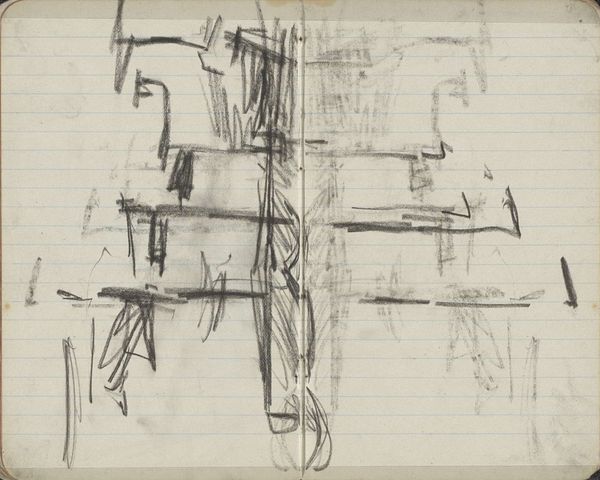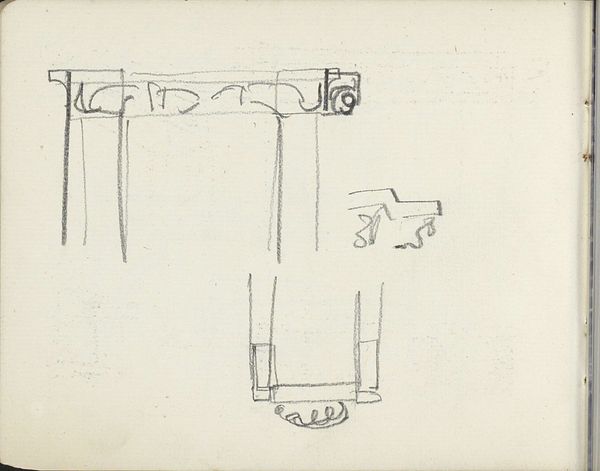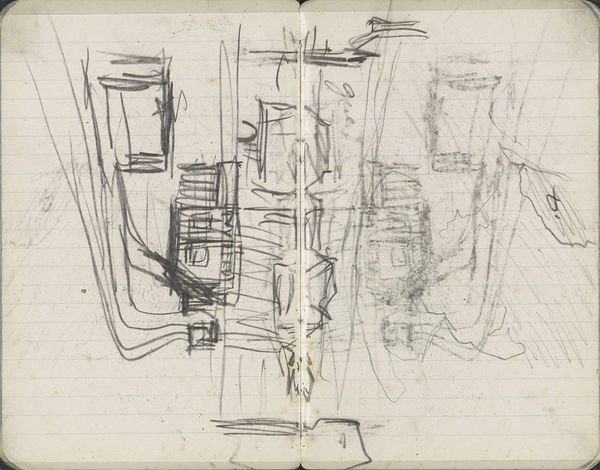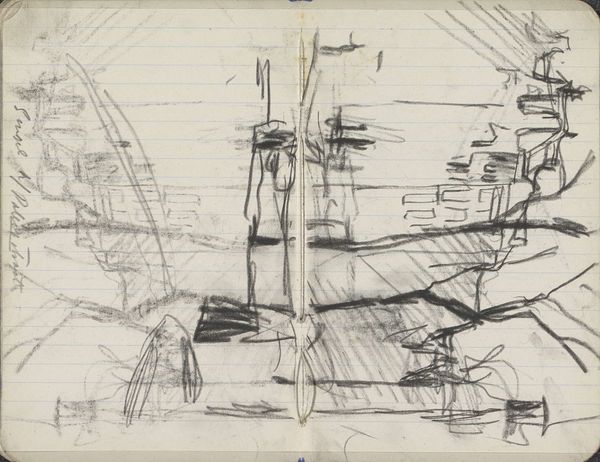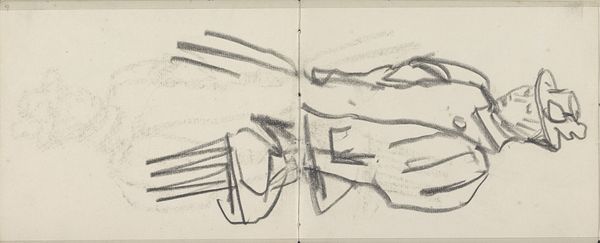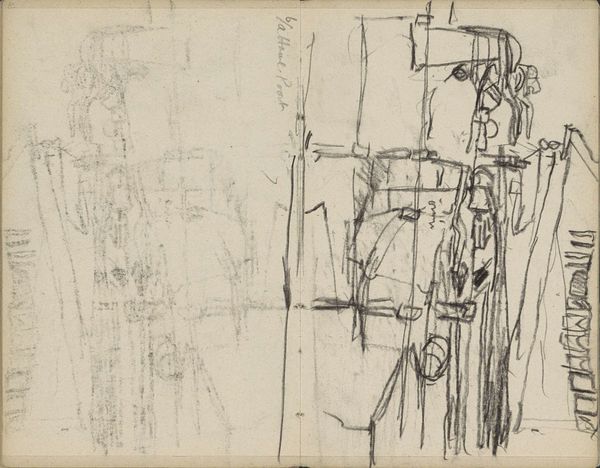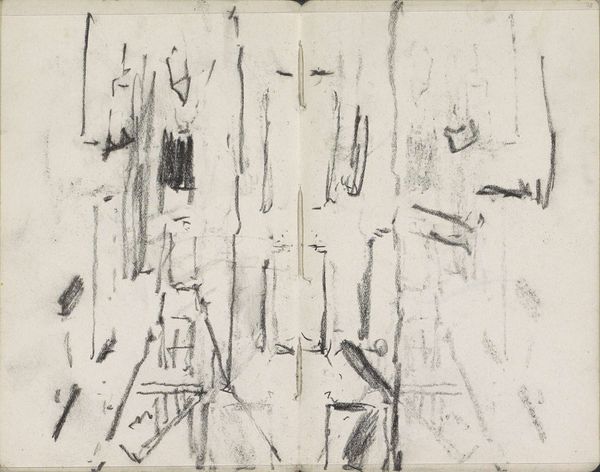
drawing, ink
#
abstract-expressionism
#
drawing
#
ink
#
geometric-abstraction
#
abstraction
#
line
Dimensions: sheet: 21.59 x 27.94 cm (8 1/2 x 11 in.)
Copyright: National Gallery of Art: CC0 1.0
Editor: Here we have Mark Rothko's "Untitled (Sketch for Harvard Mural)," created around 1961 using ink on paper. The simple lines almost give it the feeling of an architectural blueprint. What's your take on it? Curator: Rothko's work, even in sketch form, is so much about context, isn’t it? We often forget these works were designed for a very specific social setting: a Harvard dining hall. What do you make of this relationship between radical art and institutional space? Editor: It’s jarring! I mean, this isn't your typical academic art. The lines are wavering, the forms are loose. How did the Harvard commission shape Rothko's thinking, or vice versa? Curator: Exactly! Rothko sought to evoke emotional responses, and the murals, though ultimately rejected and never permanently installed at Harvard, demonstrate the struggle between art's capacity to stir individual introspection and the institutional expectation for palatable public expression. Do you think this sketch conveys a sense of unease? Editor: Definitely! It feels unfinished and maybe even a bit unsettling, considering where it was meant to be. The unadorned, rudimentary style makes you think it might even reflect a critical stance toward academic tradition? Curator: A very perceptive interpretation. Rothko wrestled with the responsibility of creating meaningful art within the very structure he perhaps questioned. This sketch allows us to consider that ongoing negotiation. Editor: That makes the "unfinished" quality make more sense. It’s not just a sketch, it’s a moment of negotiation between the artist and an institution. Thanks, that gives me a whole new way of looking at it! Curator: Precisely! Considering the power dynamics at play reveals new depths, especially in the context of Abstract Expressionism’s quest for autonomy.
Comments
No comments
Be the first to comment and join the conversation on the ultimate creative platform.
